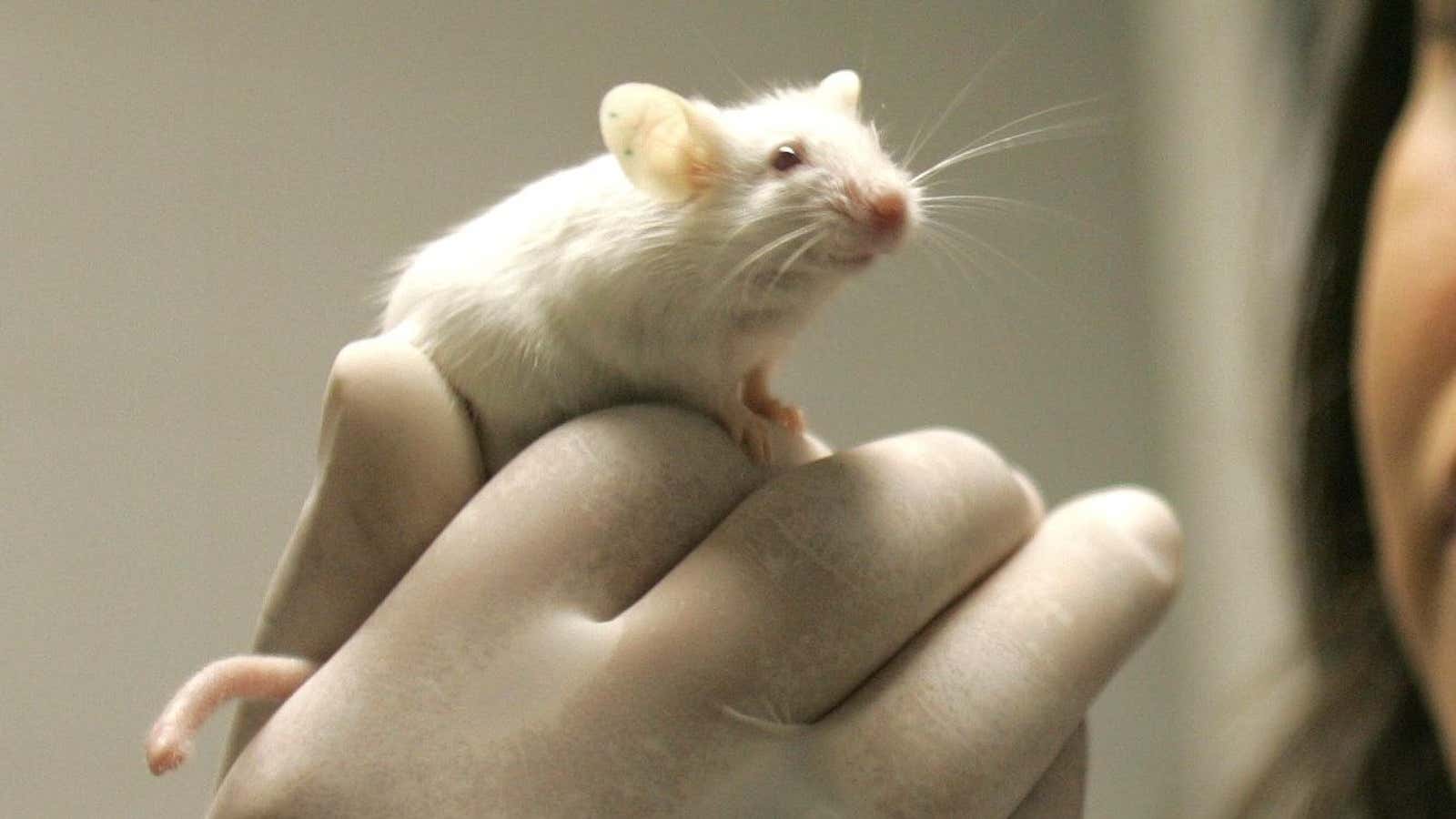The brains of mice and of humans may not be identical, but they have a few important things in common. Other than general gray wrinkliness, and a similar structure, each experiences a key window of development during adolescence, which begins in puberty and ends at adulthood. During this period, mice (and people) exhibit an intense desire for social interaction, in which the brain craves oxytocin, sometimes referred to as the love or cuddle hormone. Social interaction is more desirable and more rewarding, because the brain is more sensitive to environmental stimulation. But when the period ends, individuals become less interested in social interaction. The rewards that they derive from it are permanently diminished.
A study published last week (April 3) in Nature—and performed only on mice—seems to have found a way to open that window back up again. When given the psychedelic drug MDMA, often associated with euphoria and rave culture, mice responded to and craved social interaction as they once did. The effects from one dose could last up to two weeks at a time.
The researchers first assessed the mice’s social behaviors at different stages of development, from infancy through adulthood. The mice could choose to be in a room alone, or in a “social room” with other mice. During adolescence, the teen mice were desperate to be around other mice; once they’d grown into fully-developed adults, they didn’t seem to care whether they were on their own or squeaking away with others.
Some 48 hours after being injected with a weight-based dose of MDMA into their abdomens, the mice showed a clear preference for situations in which they could be with other mice.
“This suggests that we’ve reopened a critical period in mice, giving them the ability to learn social reward behaviors at a time when they are less inclined to engage in these behaviors,” researcher Gül Dölen, from John Hopkins University, said in a statement.
It’s not clear whether the drug has the same effect on people, or could be used to provoke similar responses. But it may inform ongoing studies into the effects of MDMA on certain mental health conditions. Early clinical trials on MDMA-assisted psychotherapy on military veterans with chronic PTSD have already had promising results.
